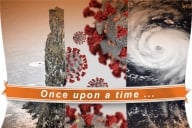You have /5 articles left.
Sign up for a free account or log in.
In the context of the news that day in February, the announcement was almost jarring in its banality. On a day when legislators at all levels and all over the country were in full panic mode about budget deficits, and at a time when public investments in education, particularly higher education and most particularly the liberal arts, were being offered as examples of excessive government spending, a new commission had been formed.
At the request of a bipartisan group of members of Congress, the American Academy of Arts and Sciences had gathered a group of distinguished citizens and asked them to recommend 10 actions "that Congress, state governments, universities, foundations, educators, individual benefactors, and others should take now to maintain national excellence in humanities and social scientific scholarship and education, and to achieve long-term national goals for our intellectual and economic well-being." A bipartisan request to form a group to engage in long-range planning about the nation’s intellectual well-being by focusing on the liberal arts — such an announcement not only seemed out of place in the newspapers that day, it seemed almost to come from another generation.
Had these people not heard that, as House Speaker John Boehner put it, "We’re broke"? Didn’t they — these misguidedly bipartisan legislators and anachronistic advocates of the liberal arts — realize that we were in a crisis that precluded long-term planning and collective action? How could they fail to see that education today must focus on job training and economic competitiveness? And what were they thinking in focusing on liberal arts?
It has indeed been hard in recent months to hear anything other than the voices of doom. But the language spoken by these voices represents its own form of crisis, for it is almost entirely economic, as if all relevant factors in our current situation could be captured on a spreadsheet or a ledger. The reduction of complex social and political issues to economics signifies a failure of imagination; and "fiscal responsibility," while an excellent principle at all times, has come to serve as a proxy for our fears that we have lost our way in the world, that the future will not be as bright for our children as it was for us when we were young, that America is being outcompeted by countries that used to be "third world," that the future has somehow gotten away from us.
Fear, whose radical form is terror, has temporarily crippled our national imagination. Many young people today can barely recall a time when we were not subject to the shadowy horrors of terror and terrorists. Today, 10 years after 9-11, terror is a fact of life, and fear makes all the sense in the world. How else to explain the emergence of what are in effect survivalist and vigilante attitudes among so many of our political leaders?
At this time, it is useful for those with longer memories to recall that "other generation" that the current effort to support the liberal arts so strongly evokes. This would be the generation that, having fought their way out of the Great Depression, went out and won World War II. That generation, like ours, had things to fear, but they conquered their fears by taking action, including creating a commission charged with long-term planning for the nation’s educational system, focusing on liberal education.
This commission, created by President James Bryant Conant of Harvard, was formed in 1943, in the middle of the war, and completed virtually all of its work while the outcome of the war was still uncertain. Still, the vision its members announced was confident, spacious and radical. Their report, General Education in a Free Society — or the “Redbook,” as it was called — outlined a program of liberal education for both high school and college students, with required courses in the sciences, the social sciences, and the humanities. The intention was to extend to masses of people — including the hundreds of thousands of returning soldiers who would be going to college on the new GI Bill — the kind of non-vocational education previously available only to a select few.
Such a program, the commission thought, would be profoundly American in that it would prepare people for citizenship in a democracy, giving them what they needed not just to find a job but to live rich and abundant lives, the kinds of lives that people in less fortunate societies could only dream about. Announcing the great mission of American education and the new shape of American society after the war, the Redbook was hailed as a powerful symbol of national renewal, and served as an announcement of America’s cultural maturity. Its main arguments were translated into national policy by the six-volume 1947 "Truman Report," called Higher Education for American Democracy.
The program bespoke confidence in democracy, and in the ability of people to decide the course of their lives for themselves. It suggested, too, a conviction that a democracy based on individual freedom required some principle of cohesion, which would, in the program they outlined, be provided by an understanding of history and culture, which they entrusted to the humanities.
Of course, not every institution of higher education has followed this extraordinarily ambitious and idealistic vision. Indeed, by one recent account, only 8 percent of all American institutions of higher education give their students a liberal education. But that 8 percent includes virtually every institution known to the general populace, including Cal Tech and MIT. With their unique dedication to liberal education, American universities are acknowledged to be the best in the world at two of the central tasks of higher education: educating citizens and conducting research.
Mass liberal education was advocated in the face of challenges every bit as great as those we face today. As a consequence of the war, the national debt had exploded, reaching unprecedented levels (121 percent of GDP in 1946, compared with 93 percent in 2010). And as the grim realities of the Cold War set in, including the prospect of nuclear annihilation and the widespread fear of enemies within, many people felt that the nation was vulnerable in ways it never had been. It would have been understandable if the nation had tried to hedge against an unpredictable future by cutting spending, turning inward, and retooling the educational system so that it would produce not well-rounded citizens but technocrats, managers, nuclear engineers, and scientists.
Instead, we created the Marshall Plan, built the interstate highway system, and increased access to higher education so dramatically that, by 1960, there were twice as many people in higher education as in 1945. And incidentally, the middle class was strong and growing, and the fight for civil rights acquired an irresistible momentum. Things were very far from perfect, but we unhesitatingly call the generation that accomplished all this "the greatest."
What really distinguished the American philosophy of higher education in the generation after WWII was its faith in the future. People educated under a system of liberal education were expected not to fill slots but to create their lives in a world that could not be predicted but did not need to be feared. The lesson for today is perfectly clear. Terrors will always be with us, but we can choose to confront them through collective action and a recommitment to the core principles of democracy, including access, for those who wish to have it and are able to profit from it, to a liberal education. "We’re broke" is a sorry substitute for the kind of imagination and boldness needed now, or at any time. We must take the long view, the global view, and the view that does the most credit to ourselves.
I would not presume to tell the new commission which steps to support the liberal arts they should endorse. But I would urge on them a general principle: that liberal education should not be considered a luxury that can be eliminated without cost, much less an expensive distraction from the urgent task of economic growth, but a service to the state and its citizens. It is an essential service because it reflects and strengthens our core commitments as a nation, without which we truly would be broke.







